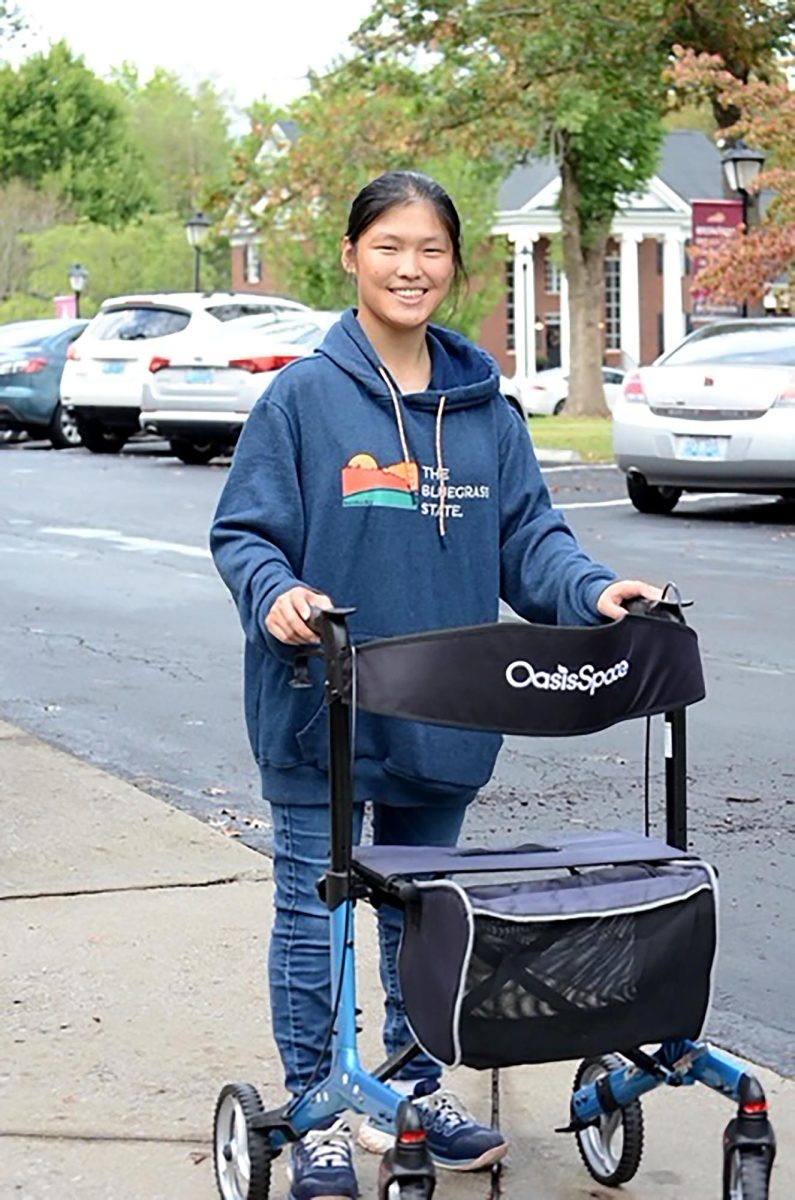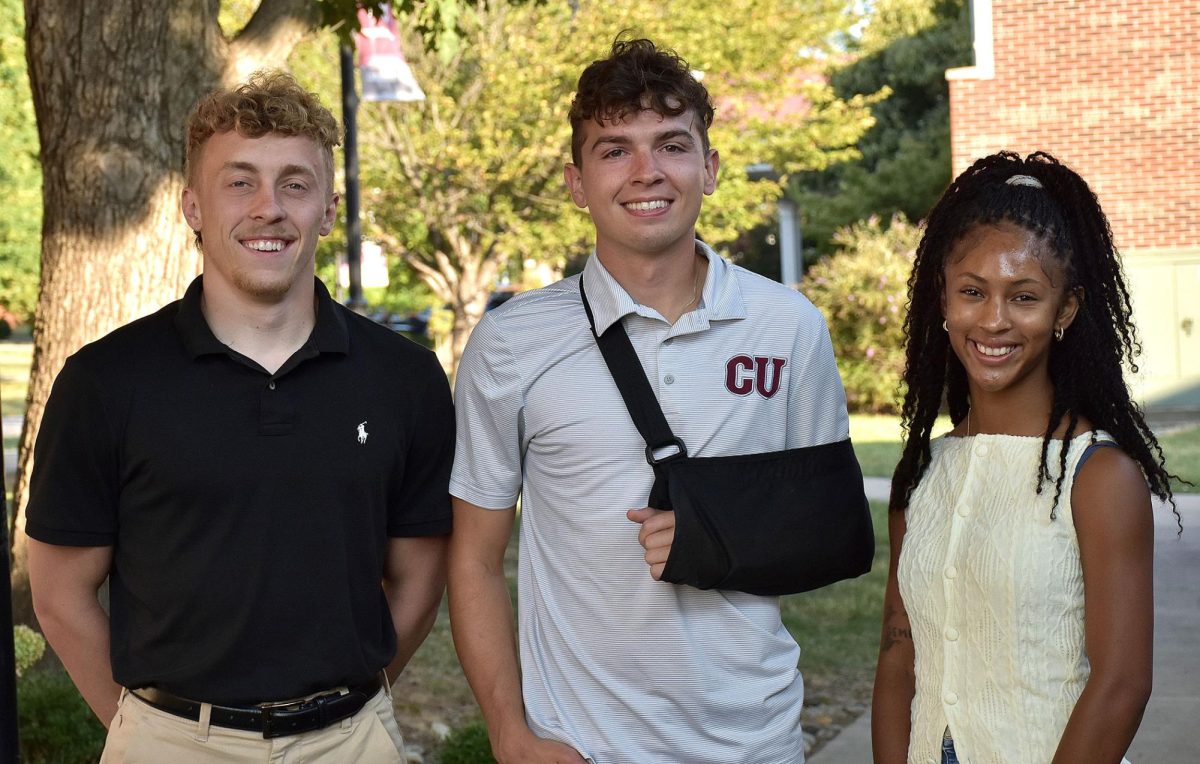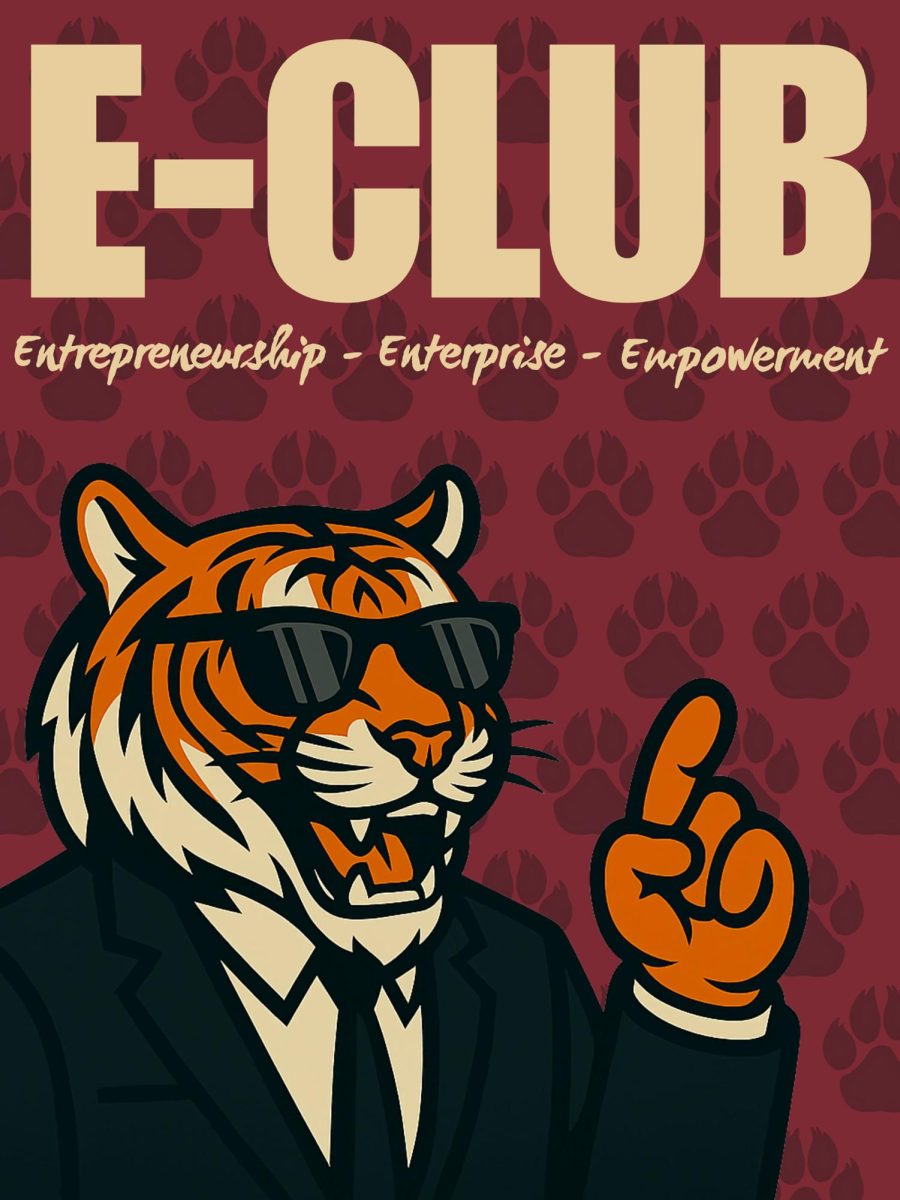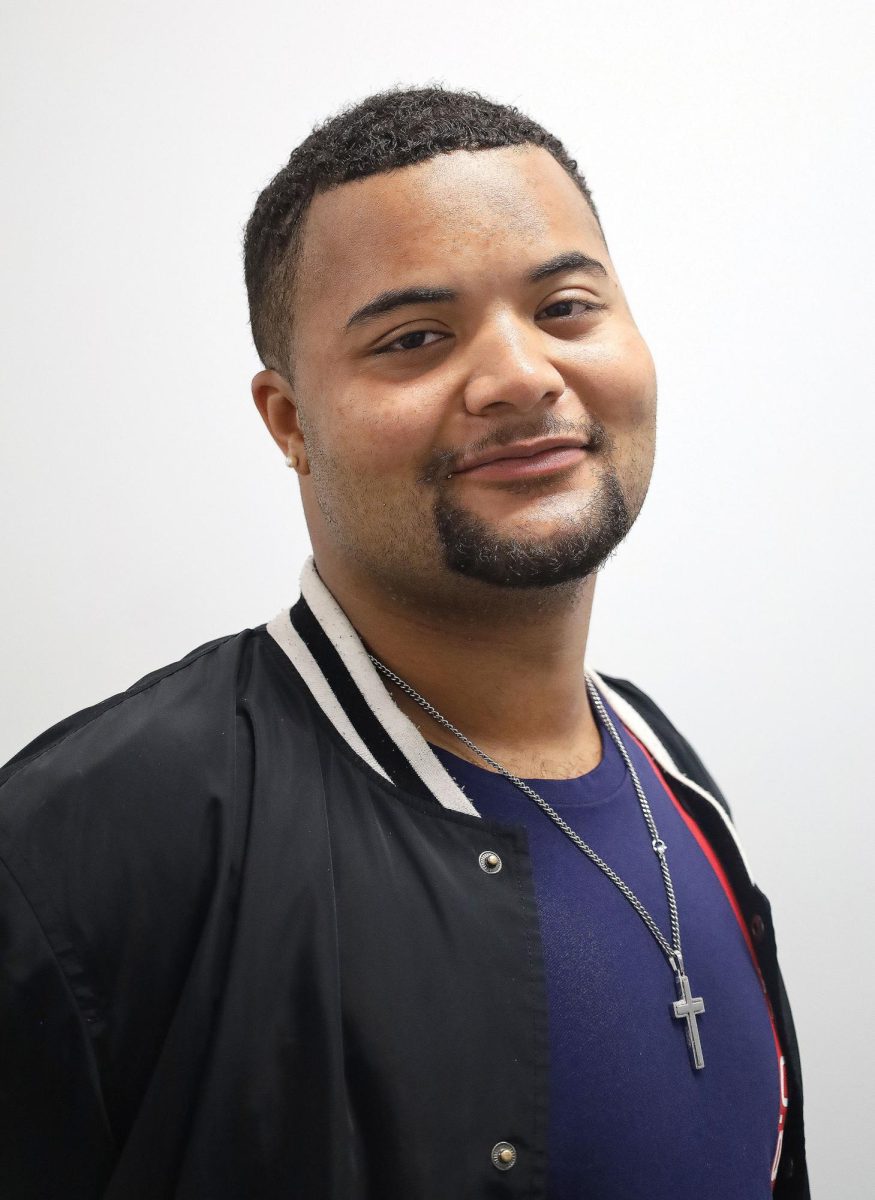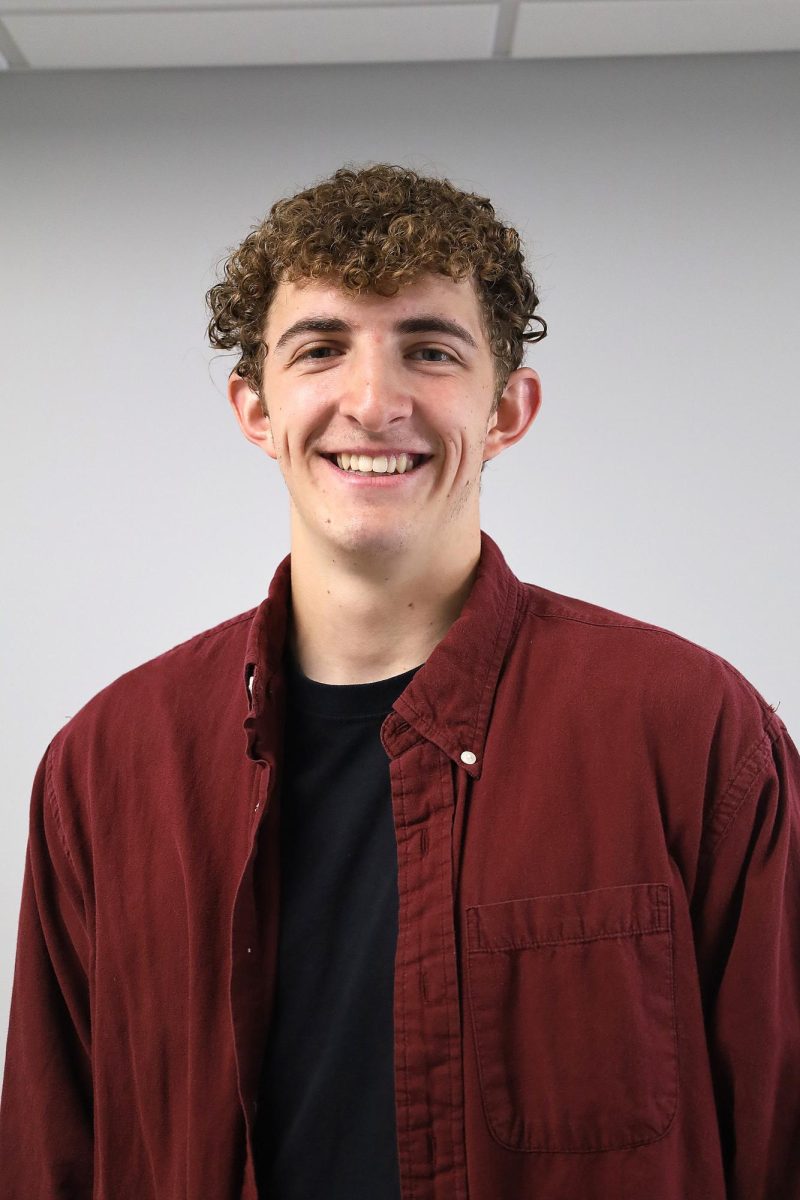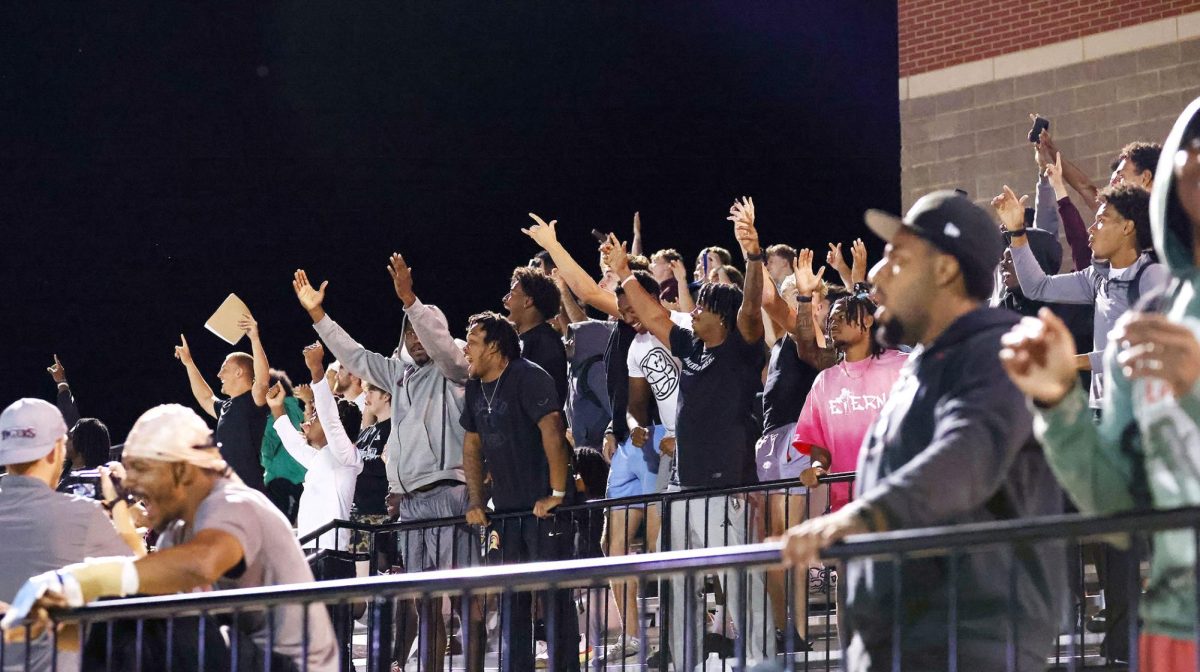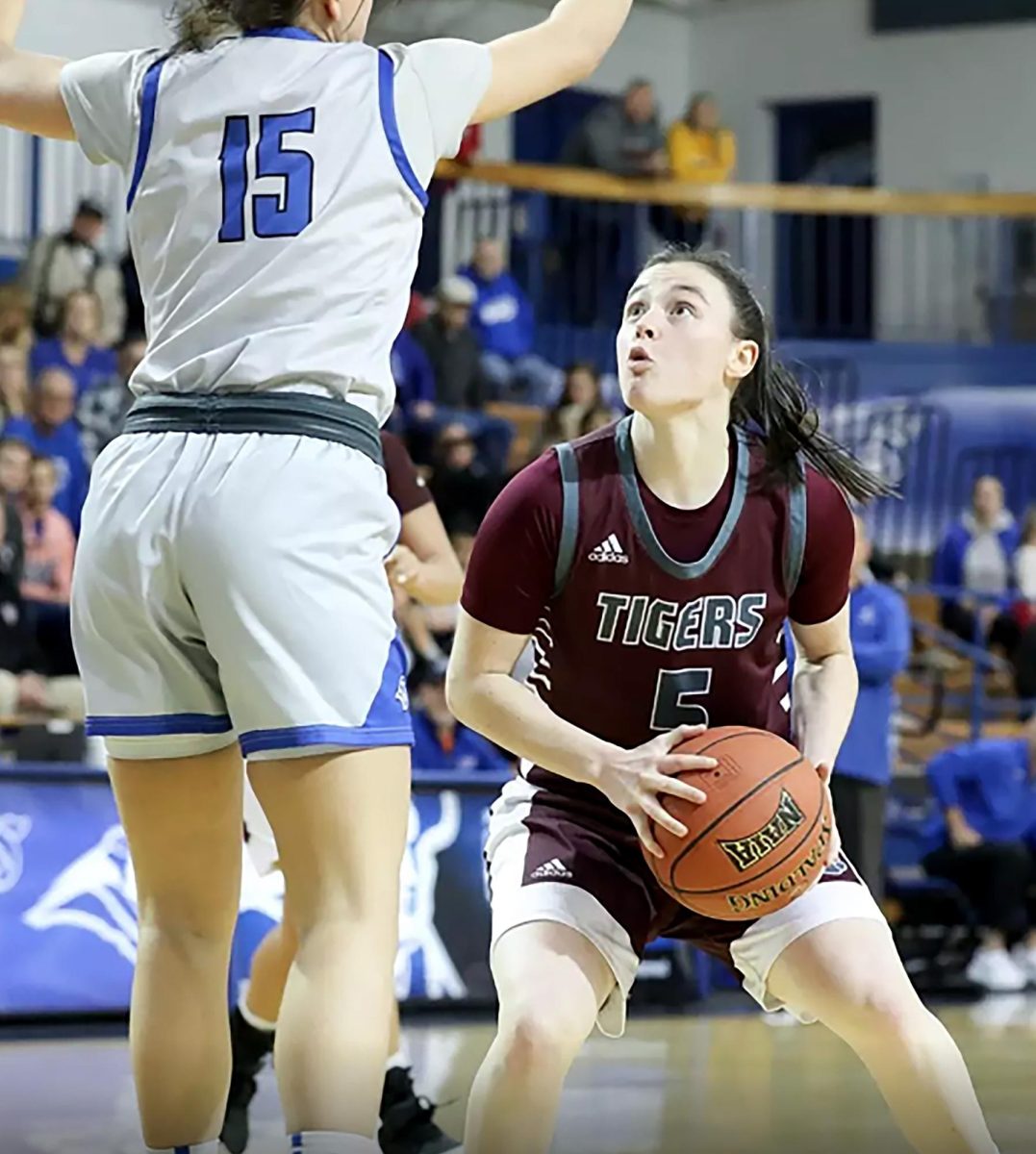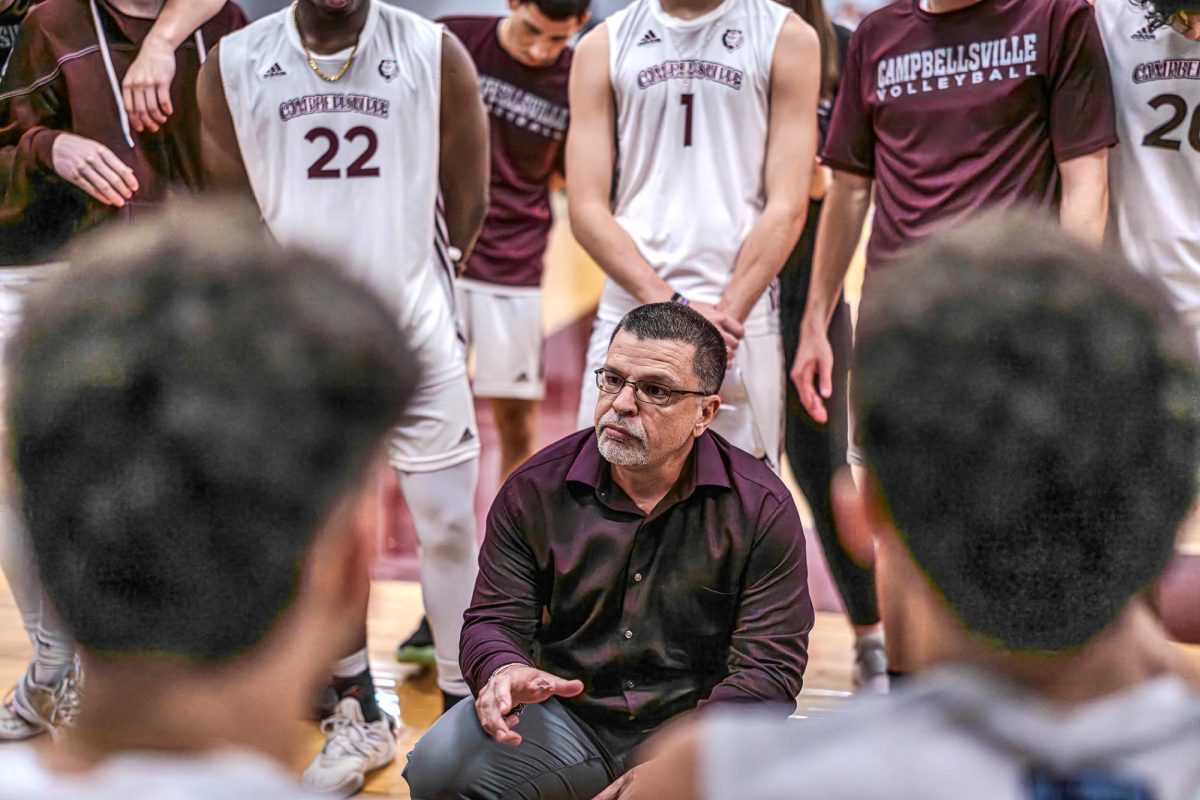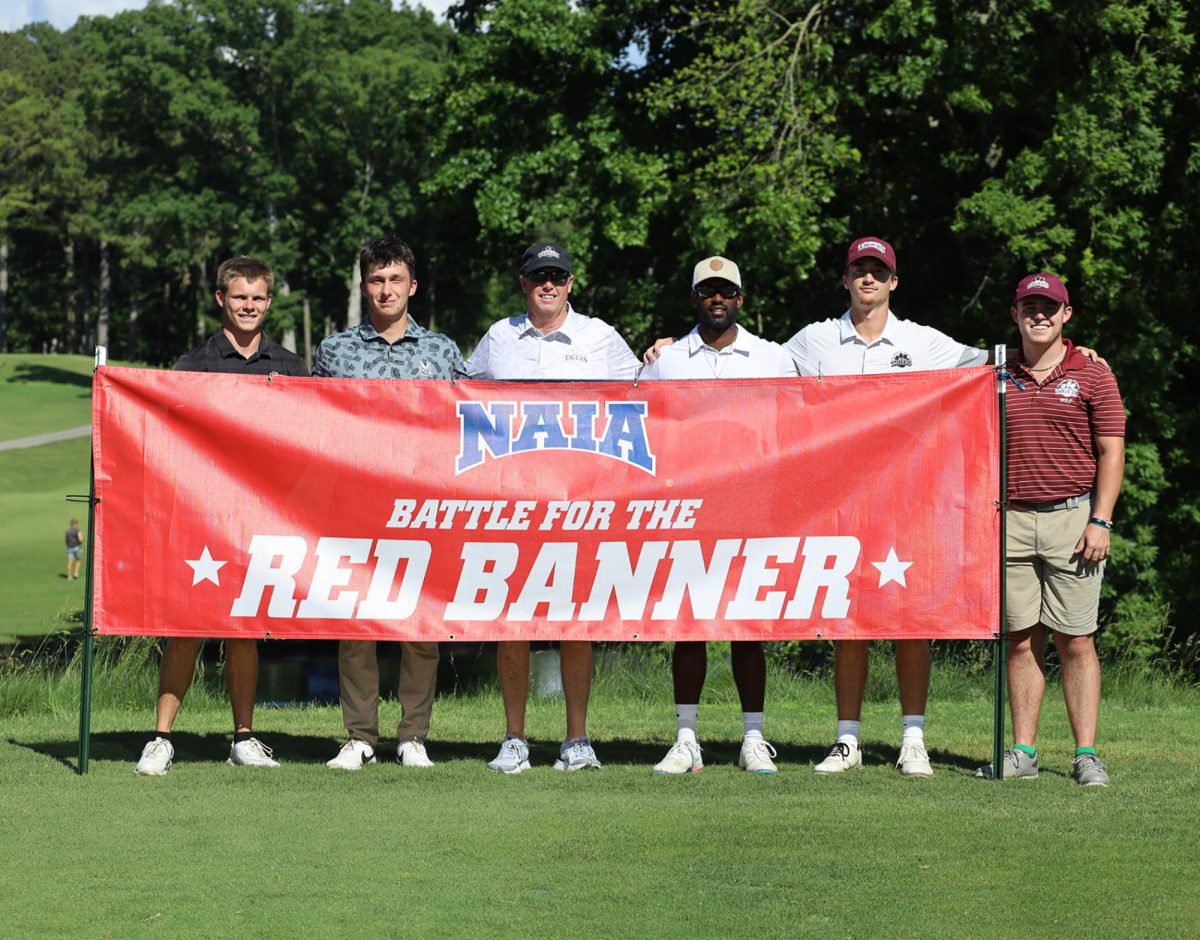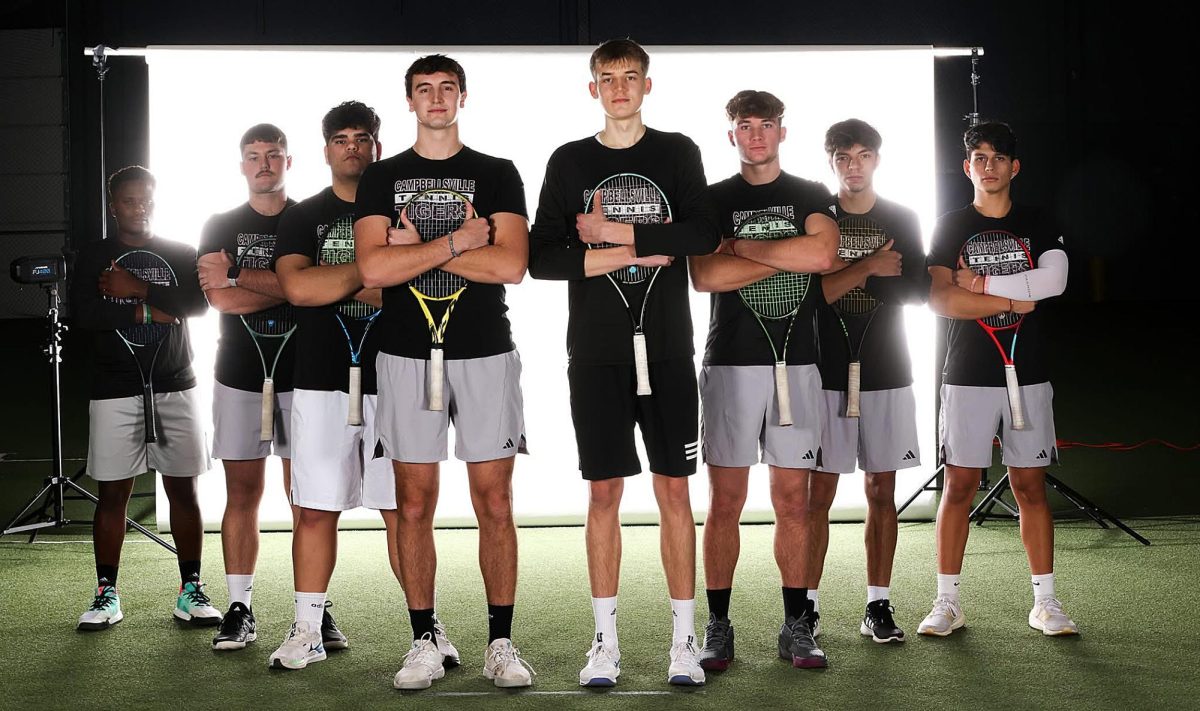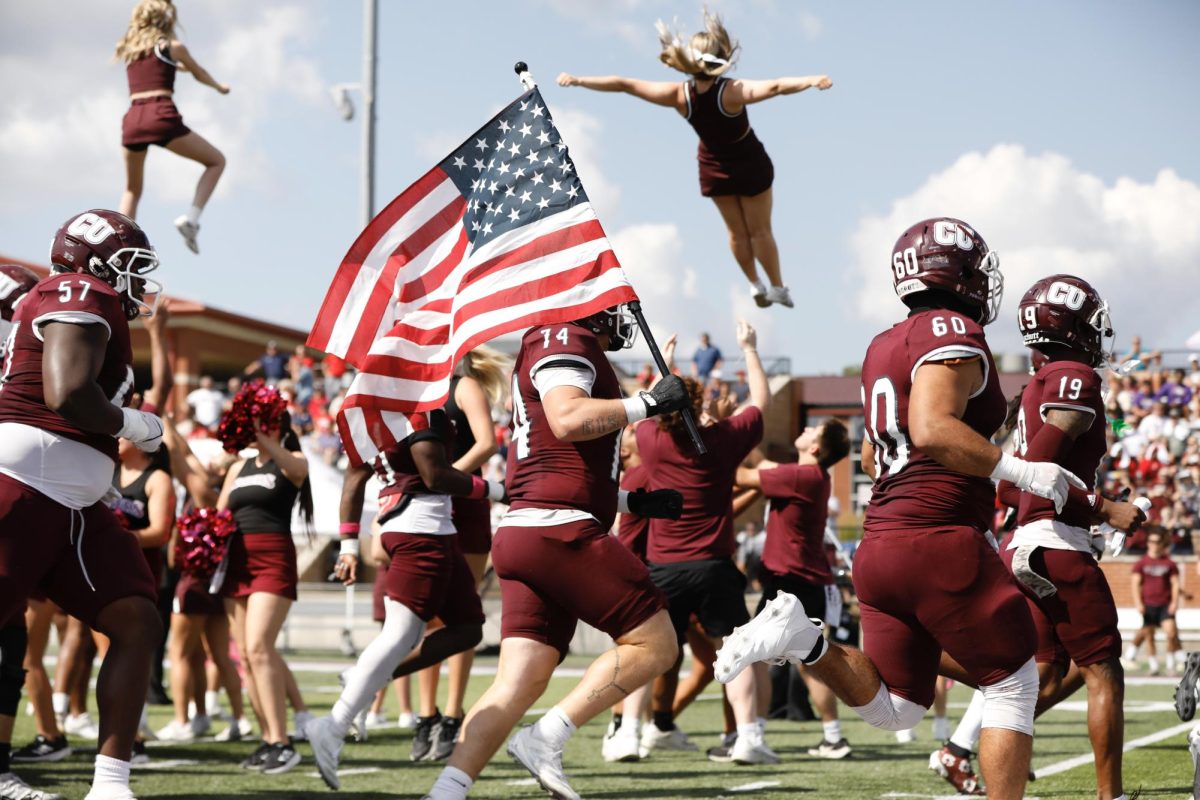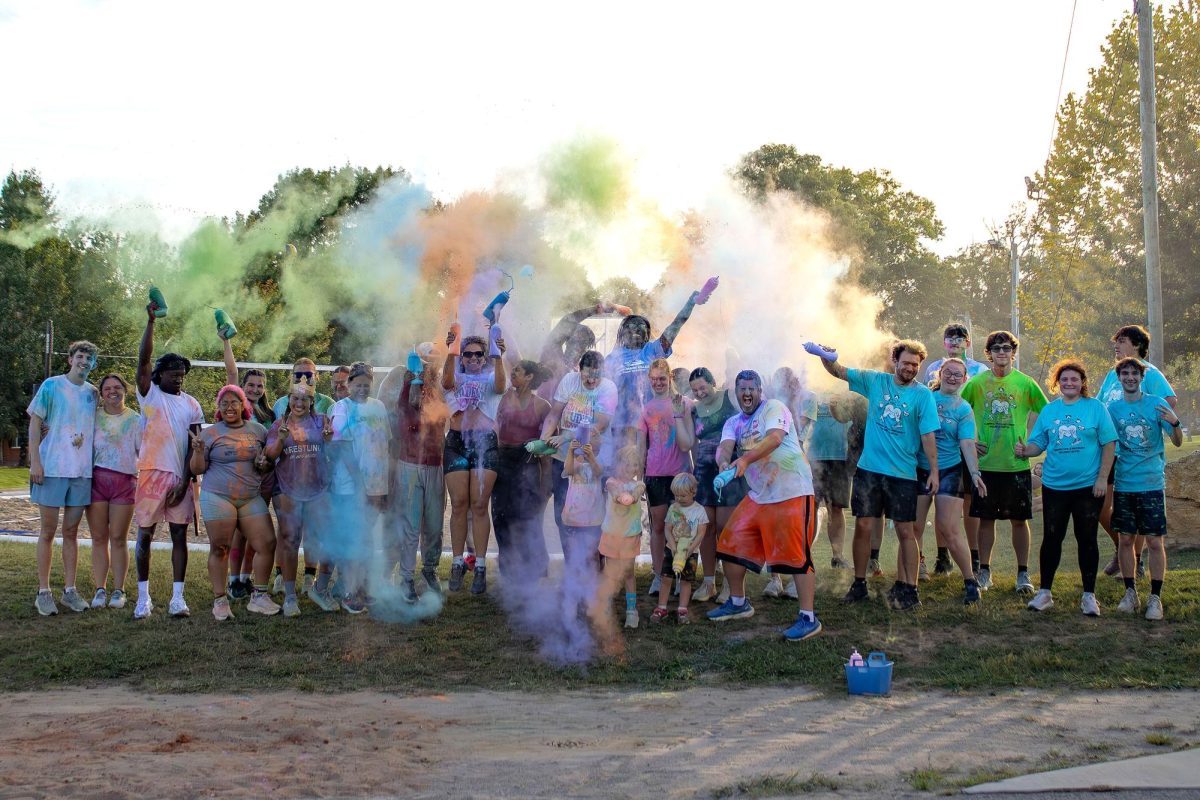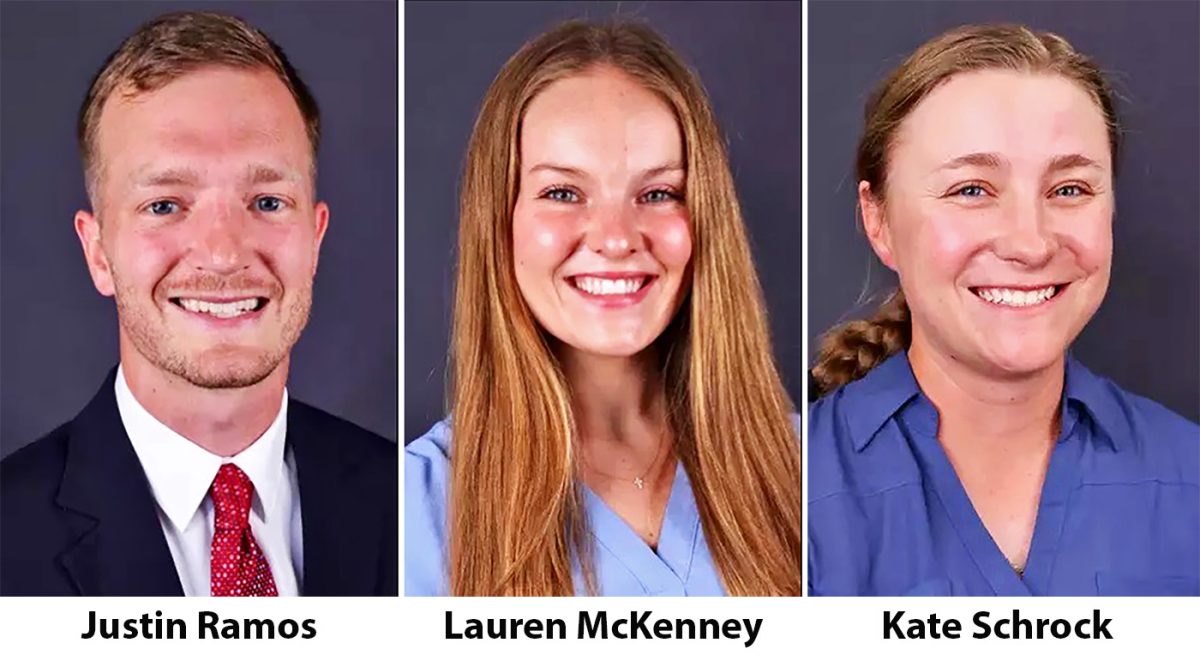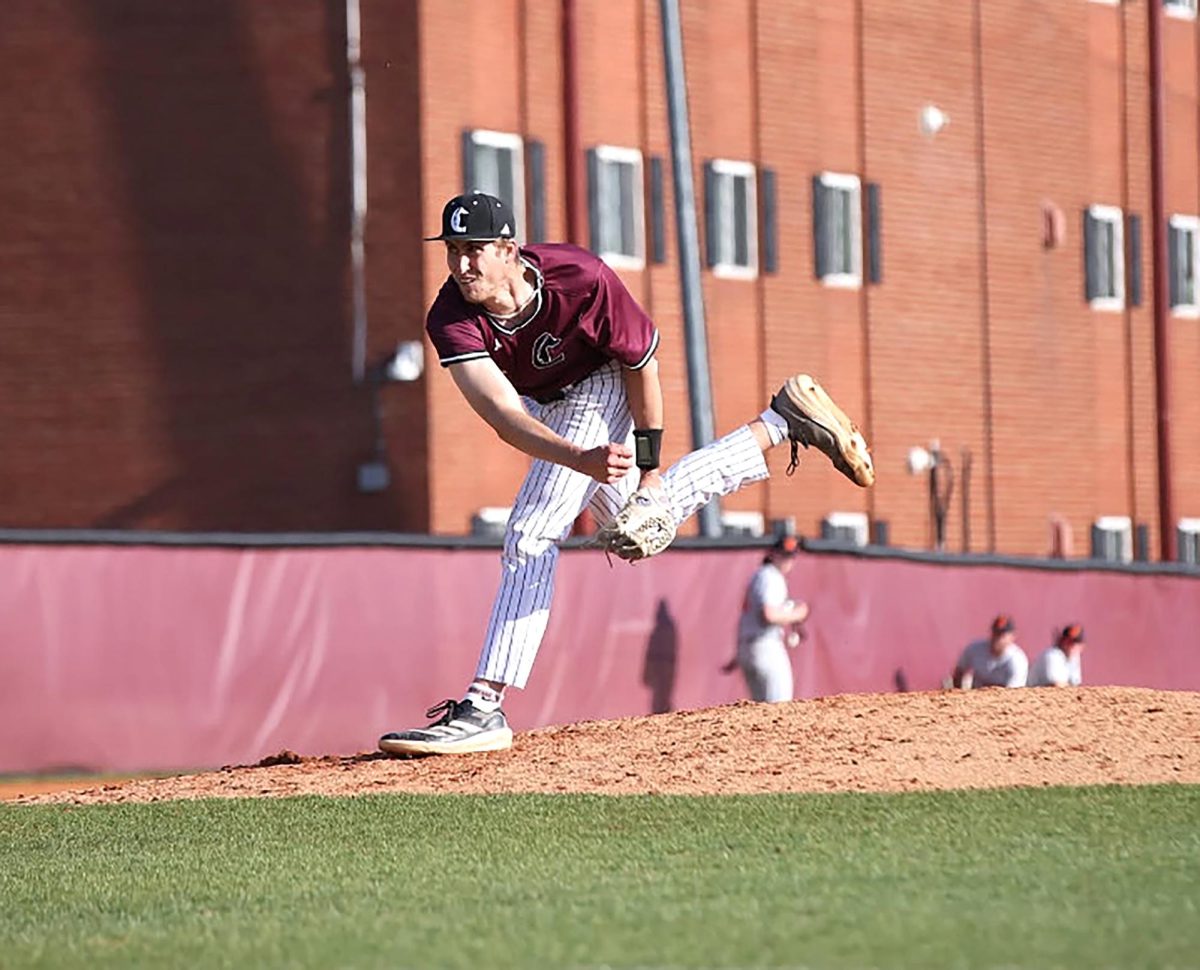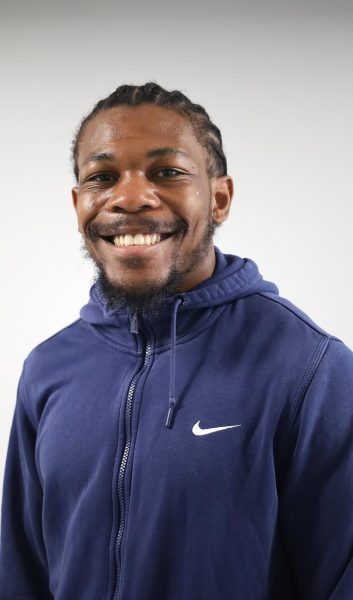Campbellsville University Athletic Trainer Justin Ramos and Assistant Athletic Trainers Kate Schrock and Lauren McKenney are a hard-working team of three that often work behind the scenes for the CU football team. They don’t get much of the spotlight for the work they do, but without them, the football team can’t keep its players healthy on the field each week. Athletic trainers take on daily responsibilities, such as providing athletic training services and applying tape, bandages and braces to protect or prevent injuries. They evaluate injuries and provide first aid while implementing rehabilitation programs for injured athletes and developing injury prevention programs.
The football team is the biggest team at CU with approximately 120-plus athletes, so they take on all these responsibilities for more athletes than any other sport.
With such a highly demanding job, loving what comes with it and finding what makes you excited to show up to work every day is important for long-term success.
“I love being around athletes every day, being able to help athletes perform at their best every day,” Ramos said.
Athletes make the high demands that come with the job worth it each and every day, along with the individuals they work with.
“The athletes make our job fun,” McKenney said. “It’s always a good atmosphere all around with the athletes and colleagues.”
A healthy work environment is important for any job to be enjoyable and it’s a major point of emphasis for the big three.
“The people I work with help to keep me calm and patient,” Schrock said. “We’re able to joke around and make work fun, but most importantly each of us has come from different athletic backgrounds. When any of us are stuck, we’re able to help each other out.”
The big three have a few sayings they use during chaotic moments to remind themselves to lean on each other through it all.
“Patience and grace” was the saying last year. This year, it’s “Calm is contagious.”
“We say this to each other whenever things get chaotic,” Ramos said. “Being able to communicate with each other through it all is how we keep things under control.”
There are three pillars the big three emphasize in their work environment to ensure that everyone is not only doing their part but that they’re also helping each other do theirs. Communication is a word consistently used to describe how they keep the environment from being overwhelming.
“This is very important because there is so much that goes on throughout the day and we need to make sure that everyone is on the same page,” Schrock said. “Specifically for football, Justin, Lauren and I always have to communicate to make sure we’re on the same page.”
The second pillar they remain consistent with is honesty. Creating an environment where you can openly and honestly speak to each other about the things that go on daily is important in the training room.
“Do a good job with these stops things from building up,” Ramos said. “Being able to respectfully talk about things that bother you with each other, along with a lot of positive reinforcement is important.”
The last pillar is accountability which allows communication and honesty to be so involved in the room. Accountability comes from all three evenly, which allows them to openly listen to each other’s different perspectives on different situations.
“You aren’t alone. Accountability from all sides is important,” McKenney said. “Be open to failure and making mistakes. What you learn from it is what matters, because if you don’t learn from it you won’t grow at all.”
The big three are consistently looking for ways to not only be better but for ways to learn more about their job. Staying curious, no matter how long you’ve been working in the profession is how you stay consistent and improve.
“Remaining curious is how I find ways to get better each day,” Ramos said. “Each day is a research day. Each day I tape an ankle, I’m doing a self-examination. When I do rehabs, I’m looking to ask more questions to figure out how I can make those exercises better. Always researching, striving to be great, and never being complacent allows me to constantly improve.”
The technology and information for their job is always changing and evolving, which forces them to often learn daily as well.
“Staying up to date with new technology, exercises, resources, online literature, always researching to study and see what’s most effective,” McKenney said. “Always trying to improve and learn from other studies. Trial and error, along with learning from other students and the athletes I work with daily.
They enjoy game day more than anything because it is rewarding to see athletes who worked with them to get back on the field successfully do so to be able to play on Saturdays.
“Game days are better, though every day gets treated like a practice,” Ramos said. “I love seeing athletes grind all week to get back on the field just to see them successfully heal and be able to play on Saturdays.”
Athletic trainers can work anywhere from 30 to 70 hours a week depending on what their schedule looks like. Creating an environment they not only love coming to work in, but a successful one is something the big three have prided themselves on. They have done this by leaning on each other during chaos, while also speaking openly and honestly about the tasks they meet daily.
This team of three has rallied around each other to successfully keep the football players here at CU healthy on the field and off the sidelines.

